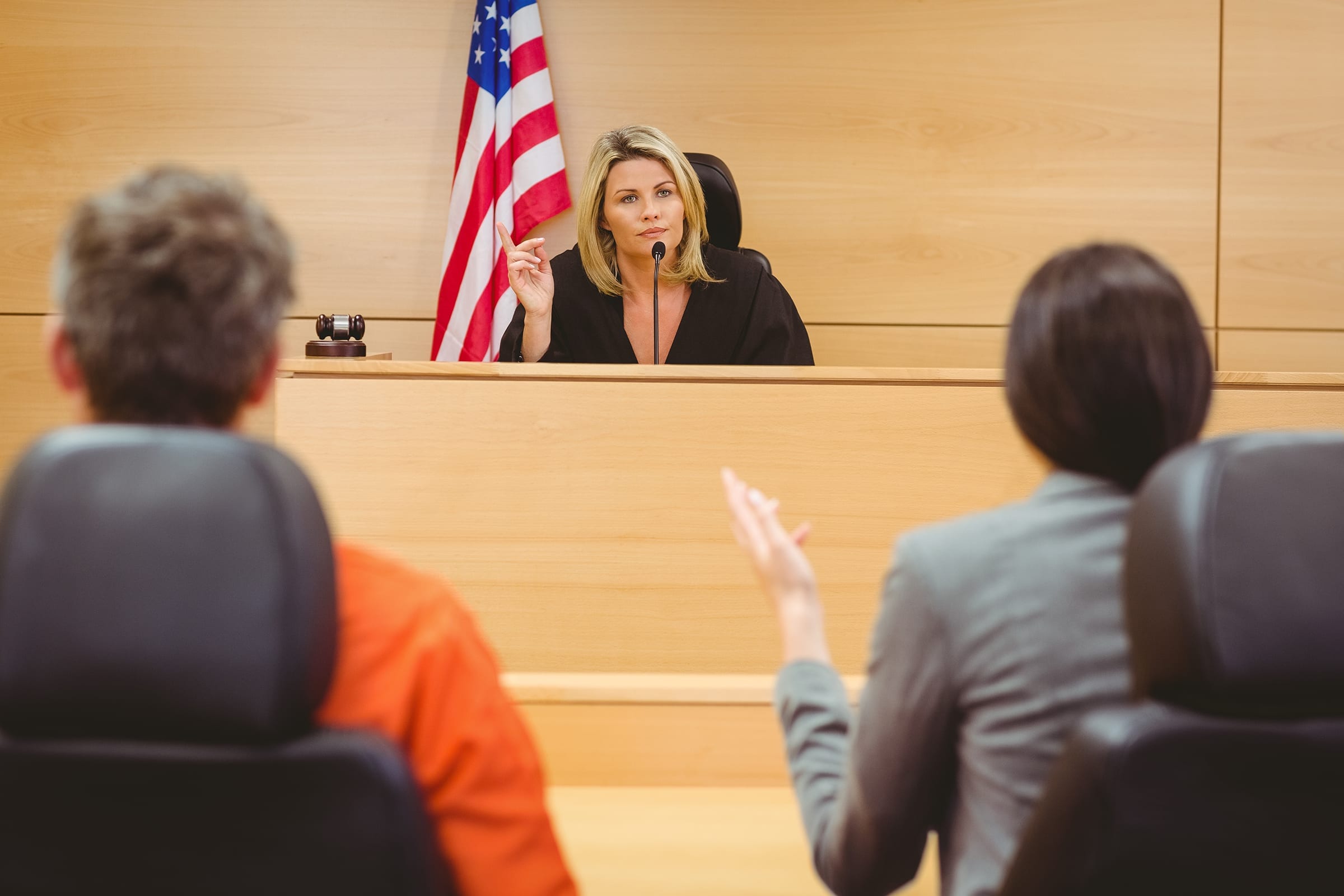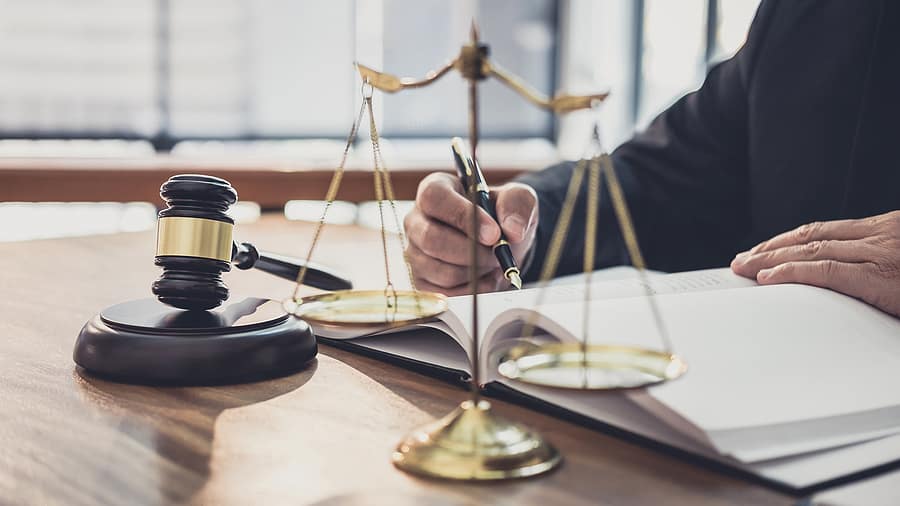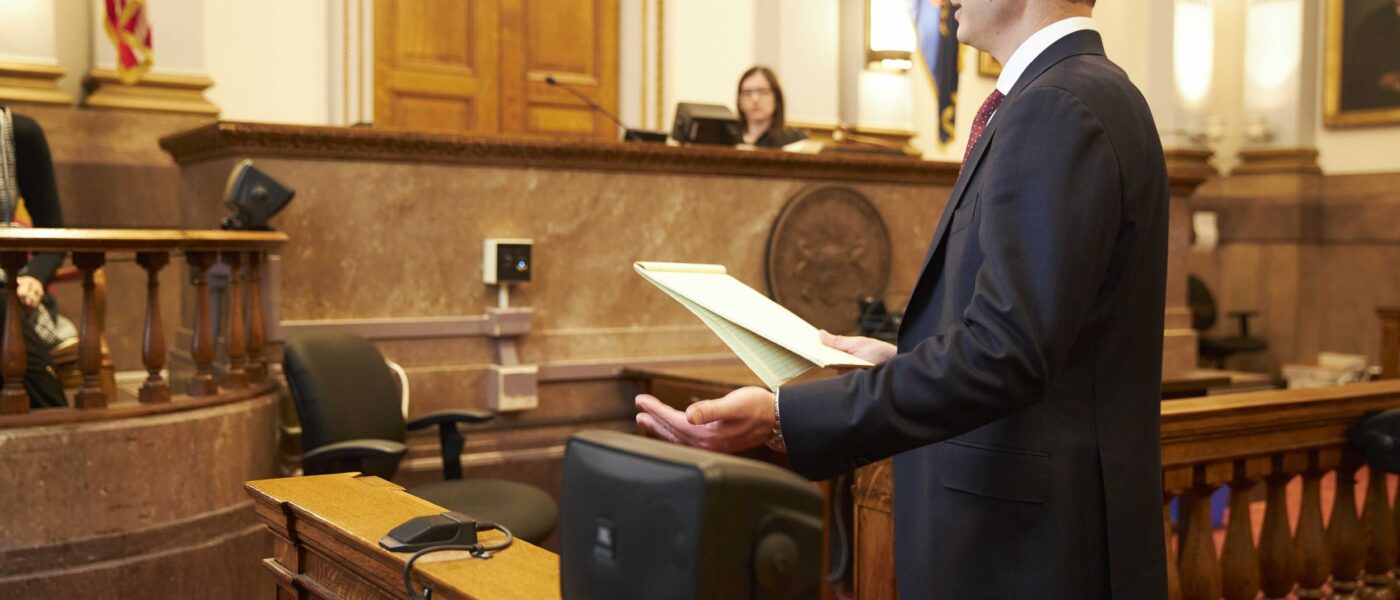what happens at a preliminary hearing
At a preliminary hearing, the court evaluates evidence to determine if there’s enough to proceed to trial. This involves the presentation of evidence and witnesses by the prosecution, as well as the opportunity for the defense to cross-examine witnesses.
A preliminary hearing, also known as a probable cause hearing, is a crucial stage in the legal process where the judge or magistrate assesses the evidence presented by the prosecution to decide if there’s enough to proceed to trial. This hearing provides an opportunity for the defense to challenge the evidence and witness testimonies, and for the prosecution to demonstrate the strength of their case.
Understanding what happens at a preliminary hearing can help individuals involved in criminal cases navigate the legal system effectively and make informed decisions about their defense strategy.
Introduction To Preliminary Hearings
At a preliminary hearing, the prosecution presents evidence to determine if there’s enough for trial. Witnesses may testify, and the judge decides on trial readiness based on the evidence presented.
Preliminary Hearing Basics
A preliminary hearing is an important legal proceeding that happens in criminal cases. It is often the first step in the process, and it takes place before a trial. During a preliminary hearing, the judge will listen to evidence and arguments from both the prosecutor and the defense. The goal of the hearing is to determine if there is enough evidence to proceed to trial. If the judge decides that there is, the case will move forward. If not, the case may be dismissed.Purpose Of The Preliminary Hearing
The purpose of a preliminary hearing is to determine if there is enough evidence to move forward with a criminal trial. During the hearing, the prosecution must present evidence that shows there is probable cause to believe that the defendant committed the crime they are accused of. The defense has the opportunity to cross-examine witnesses and challenge the evidence presented by the prosecution. If the judge determines that there is enough evidence, the case will move forward to trial. If not, the case may be dismissed. During the preliminary hearing, the defense may also have the opportunity to negotiate with the prosecution. This can happen if the prosecution presents weak evidence or if there are other weaknesses in their case. The defense may be able to negotiate a plea deal that is more favorable than what they would receive if the case went to trial.What Happens During A Preliminary Hearing?
During a preliminary hearing, the judge will listen to arguments and evidence from both the prosecution and the defense. The prosecution will present evidence that shows there is probable cause to believe that the defendant committed the crime they are accused of. This may include witness testimony, physical evidence, or other evidence that supports the prosecution’s case. The defense will have the opportunity to cross-examine witnesses and challenge the evidence presented by the prosecution. They may also present evidence of their own that challenges the prosecution’s case. This could include witness testimony, physical evidence, or other evidence that supports the defense’s case. After both sides have presented their arguments and evidence, the judge will make a decision about whether or not there is enough evidence to proceed to trial. If the judge determines that there is, the case will move forward. If not, the case may be dismissed.The Role Of The Judge
During a preliminary hearing, the judge assesses if the prosecution has adequate evidence for the case to go to trial. The prosecution presents evidence and calls witnesses to establish the defendant’s need for a trial. This phase may result in a trial, reduced charges, or dismissal based on the evidence presented.
Determining Probable Cause
A preliminary hearing, also known as a probable cause hearing, is a legal proceeding where a judge evaluates the evidence presented by the prosecution to determine if there is enough probable cause to proceed to trial.
Potential Outcomes Of A Hearing
- Go to trial
- Reduced charges
- Dismissal of the case
During the preliminary hearing, the judge plays a crucial role in assessing the evidence and arguments presented by both the prosecution and the defense. The judge’s primary responsibility is to ensure a fair and impartial evaluation of the case.
Rights Of The Accused
At a preliminary hearing, the accused has several rights that are crucial to the fairness of the legal process. These rights ensure that the accused has a fair opportunity to defend themselves against the charges brought against them.
Legal Representation
The accused has the right to legal representation at the preliminary hearing. This is essential as a competent defense attorney can effectively present the accused’s case and protect their rights during the proceedings.
Cross-examination Of Witnesses
During the preliminary hearing, the accused has the right to cross-examine the witnesses presented by the prosecution. This allows the defense to challenge the credibility and reliability of the witnesses and their testimonies.
Prosecution’s Presentation
In a preliminary hearing, the prosecution presents its case to demonstrate that there is enough evidence to proceed to trial. This phase is crucial as it sets the stage for the trial and the defendant’s potential conviction.
Introducing Evidence
The prosecution introduces physical evidence such as documents, photos, videos, and forensic test results to support their case. This evidence aims to establish probable cause and convince the judge that there is enough reason to proceed to trial.
Calling Witnesses
During the preliminary hearing, the prosecution may call witnesses to testify. These witnesses provide firsthand accounts or expert opinions to strengthen the prosecution’s case and further establish the validity of the charges against the defendant.
Defense Strategy
At a preliminary hearing, the defense strategy plays a crucial role in shaping the outcome of the case. It involves various tactics aimed at challenging the prosecution’s case, negotiating with the prosecution, and strategically positioning the defendant for the subsequent stages of the legal process.
Challenging The Prosecution’s Case
One key aspect of the defense strategy at a preliminary hearing is challenging the prosecution’s case. This involves scrutinizing the evidence presented by the prosecution, identifying weaknesses or inconsistencies, and presenting compelling arguments to refute the allegations. By highlighting deficiencies in the prosecution’s case, the defense aims to weaken the likelihood of the defendant being held for trial.
Negotiation Tactics
Another critical component of the defense strategy is negotiation tactics. During the preliminary hearing, defense attorneys may engage in negotiations with the prosecution to explore the possibility of reaching a favorable resolution without proceeding to a full trial. This could involve discussions about potential plea bargains, reduced charges, or alternative dispositions aimed at securing the best possible outcome for the defendant.

Credit: study.com
Types Of Evidence
At a preliminary hearing, various types of evidence can be presented to support the case. Understanding the different types of evidence is essential for both the prosecution and the defense in building their arguments.
Physical Evidence
Physical evidence plays a crucial role in a preliminary hearing. It can include items such as weapons, clothing, fingerprints, DNA samples, and other tangible objects that are relevant to the case. Physical evidence is often presented to establish a link between the defendant and the crime scene.
Video And Photographic Evidence
Video and photographic evidence are powerful tools in a preliminary hearing. They can provide visual documentation of the crime scene, events leading up to the alleged offense, or the actions of the defendant. This type of evidence can offer clear and compelling visuals that support the prosecution’s claims or the defense’s arguments.
Impact Of The Preliminary Hearing
During a preliminary hearing, the prosecution presents evidence and witnesses to demonstrate that there is enough substantial evidence for the defendant to stand trial. The judge or magistrate assesses whether the prosecution has sufficient evidence to proceed to trial, potentially leading to a trial, reduced charges, or case dismissal.
The preliminary hearing in a criminal case holds significant weight in determining the course of the legal proceedings. It plays a crucial role in shaping the future of the case by impacting its advancement to trial, the potential reduction of charges, or even the dismissal of the case.Case Advancement To Trial
At the preliminary hearing, the judge evaluates the evidence presented by the prosecution to determine if there is enough probable cause to proceed to trial. If the evidence is deemed sufficient, the case will advance to trial, where a jury will decide the defendant’s guilt or innocence.Reduction Of Charges
In some instances, the judge may decide to reduce the severity of the charges based on the evidence presented at the preliminary hearing. This reduction could result in lesser penalties for the defendant if convicted, potentially changing the course of the case significantly.Case Dismissal
If the prosecution fails to present enough evidence to establish probable cause during the preliminary hearing, the judge may dismiss the case. This outcome provides a favorable resolution for the defendant, as the charges are dropped, and the legal proceedings come to an end. The impact of the preliminary hearing is pivotal in determining the direction of a criminal case. From advancing the case to trial to the potential reduction of charges or even the dismissal of the case, each outcome significantly influences the defendant’s legal standing and future proceedings.
Credit: www.stephenstewartlaw.com
After The Preliminary Hearing
Following a preliminary hearing, the court may decide to proceed to trial, reduce charges, or dismiss the case based on presented evidence. Prosecution and defense present arguments and evidence during this crucial phase to determine the next legal steps.
After the Preliminary Hearing Once the preliminary hearing is concluded, there are several possible outcomes. The most common result is for the defendant to be held to answer for trial on the original charge. However, there are also possibilities for reduced charges or even dismissal of the case. The next step in the criminal process is the arraignment, where the defendant enters a formal plea. This is typically done by entering a plea of guilty, not guilty, or no contest. Preparation for trial will also begin after the preliminary hearing. The prosecution and defense will gather evidence and build their cases. Negotiations may also take place during this stage, as the prosecution may be willing to offer a plea deal in exchange for a guilty plea. During the trial, the prosecution will present evidence and call witnesses to the stand. Physical evidence, such as videos and photos, may also be presented. The defense will have the opportunity to cross-examine witnesses and present their own evidence. Overall, the preliminary hearing is an important step in the criminal process and can have significant implications for the defendant. It is important to have a skilled criminal defense attorney to navigate the process and protect the defendant’s rights.The Arraignment
The arraignment is the next step in the criminal process after the preliminary hearing. At this stage, the defendant will enter a formal plea of guilty, not guilty, or no contest. This plea will determine the direction of the case moving forward.Preparation For Trial
After the preliminary hearing, both the prosecution and defense will begin preparing for trial. This involves gathering evidence, building their cases, and negotiating potential plea deals. The trial is a crucial stage in the criminal process, and it is important to have a skilled attorney to navigate it successfully.Insider Insights
Gain exclusive Insider Insights into the pivotal pretrial process at a Preliminary Hearing. Discover how evidence is presented and arguments unfold, setting the stage for potential trial proceedings. Explore the critical steps where the prosecution’s case is scrutinized and the defendant’s fate hangs in the balance.
Common Misconceptions
Many individuals mistakenly believe that the outcome of a preliminary hearing determines guilt or innocence, but its main purpose is to assess if there is enough evidence for a trial.
Advice From Defense Attorneys
Defense attorneys often advise their clients to remain composed during the preliminary hearing and to trust the legal process.

Credit: www.hoganeickhoff.com
Frequently Asked Questions
What Is The Most Common Result Of A Preliminary Hearing?
The most common result of a preliminary hearing is for the defendant to be held to answer or bound over for trial on the original charge. Alternatively, the judge may reduce the charge to a misdemeanor or a less serious felony.
In some cases, the charge may be dismissed. The purpose of the preliminary hearing is to determine if the prosecution has enough evidence to go to trial. Video evidence can also be used during the hearing.
What Is The Main Purpose Of The Preliminary Hearing?
The main purpose of the preliminary hearing is to determine if there is enough evidence for trial.
Can Video Evidence Be Used In A Preliminary Hearing?
Yes, video evidence can be used in a preliminary hearing to support the prosecution’s case.
At Which Pretrial Stage Is A Person Asked To Enter A Formal Plea Of Guilty Or Not Guilty?
At the arraignment stage, a person is asked to formally enter a plea of guilty or not guilty.
Conclusion
A preliminary hearing determines trial eligibility based on evidence presented. Outcome may include trial, reduced charges, or dismissal. It’s a crucial step in the legal process.

